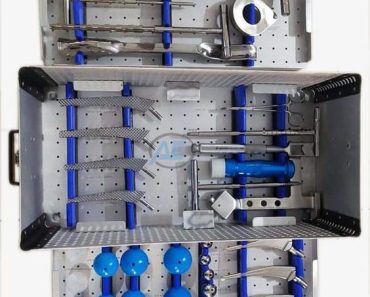In our rapidly advancing world, the significance of medical and health education is more critical than ever. With new health challenges and medical advancements emerging constantly, staying informed about health-related matters is essential for individual well-being and public health. Medical and health education empowers individuals with the knowledge needed to make informed decisions, adopt healthier lifestyles, and effectively manage health conditions.

Understanding the Broad Scope of Medical & Health Education
Medical and health education covers an extensive range of topics, from basic hygiene and nutrition to advanced medical procedures and public health policies. This education involves learning about the human body, understanding disease mechanisms, recognizing symptoms, knowing preventive measures, and staying updated with the latest medical research and treatments. This comprehensive understanding is crucial for people of all ages, as it promotes overall health literacy and enhances quality of life.
Preventive Health Through Education
One of the primary objectives of health education is disease prevention. By educating the public about common health issues, their symptoms, and preventive strategies, health education can significantly reduce the incidence of many diseases. For instance, understanding the importance of vaccinations, regular health screenings, and maintaining a healthy lifestyle can prevent numerous illnesses. Effective health education campaigns play a vital role in addressing major health concerns such as diabetes, hypertension, and infectious diseases.
Promoting Healthy Lifestyles
Health education is instrumental in promoting healthy lifestyles. It involves teaching individuals about balanced nutrition, the benefits of regular physical activity, mental health awareness, and the dangers of smoking and excessive alcohol consumption. By adopting healthier habits, people can improve their quality of life and reduce the risk of chronic diseases. This proactive approach to health benefits not only individuals but also helps to alleviate the burden on healthcare systems.
The Evolution of Medical Education
The field of medical education has undergone significant transformations over the years. Traditionally confined to classroom settings and textbooks, medical education has now embraced digital technology, making learning more accessible and engaging. Online courses, virtual simulations, and telemedicine are now integral components of medical training. These innovations have democratized medical education, allowing aspiring healthcare professionals to acquire essential knowledge and skills from anywhere in the world.
Medidex: Revolutionizing Health Consultations
In the digital age, platforms like Medidex are revolutionizing how people access medical information and consultations. Medidex offers a medical information chat, providing a chat-based platform where individuals can seek medical advice from certified professionals. This service ensures that users receive accurate and confidential information, making it easier to address health concerns without the need for in-person visits.
Medidex effectively bridges the gap between healthcare providers and patients by offering a convenient and accessible means of communication. Users can ask questions, seek second opinions, and receive guidance on managing health conditions from the comfort of their homes. This platform is particularly beneficial for those with limited access to healthcare facilities or those who prefer the convenience of online consultations.
Impact on Public Health
Health education plays a critical role in public health. Educated communities are better equipped to handle health emergencies and crises. For instance, during the COVID-19 pandemic, public health education was crucial in disseminating information about preventive measures, recognizing symptoms, and promoting vaccination. This helped control the spread of the virus and manage public anxiety.
Moreover, health education fosters a culture of support and collective action. It encourages individuals to participate in community health initiatives and support one another in times of need. An informed community is a resilient community, better prepared to face health challenges together.
The Future of Medical & Health Education
As we look to the future, the importance of medical and health education will continue to grow. Technological advancements will further enhance the delivery and effectiveness of health education. Innovations such as artificial intelligence, virtual reality, and personalized learning experiences will transform how we learn about health and medicine, making education more interactive and tailored to individual needs.





